ISLAMABAD: The Pakistan government on Friday warned state institutions not to undermine parliament as the country’s top court directed the central bank to release funds amounting to Rs21 billion by Monday for elections in Punjab and Khyber Pakhtunkhwa (KP) provinces amid mounting political tensions with the ruling coalition.
The instruction was issued only days after the federal government failed to comply with the Supreme Court judgment of April 4 which clearly directed it to release the funds to the Election Commission of Pakistan (ECP) by April 10. The National Assembly on Friday approved a resolution, though it does not have any legal value, saying it was solely the authority of parliament to approve or disapprove such funds and budgets.
Earlier this week, the ECP informed the court through a one-page report about the government’s reluctance to issue the funds required to hold polls for the two provincial assemblies which were dissolved by the Pakistan Tehreek-e-Insaf (PTI) party in January.
Since the dissolution of the assemblies by ex-premier Imran Khan’s political party and its allies, the political, constitutional and economic crises have gripped the South Asian nation. The federal government took the matter to parliament which on Thursday rejected a money bill to provide funds for the polls.
Taking notice of the situation, the apex court on Friday directed the central bank to “forthwith allocate and release Rs 21 billion for purposes of the general elections to the Punjab and KP Assemblies.”
The court also directed the finance ministry to do the needful to ensure the provision of funds to the election regulator.
“All this must be done at the earliest and at the absolute latest not later than the close of business on Monday i.e. 17.04.2023,” reads the nine-page Supreme Court order.
The court has ordered the central bank and finance ministry to file a compliance report on Tuesday that the funds had been released and received for the polls.
The apex court has already warned the federal government of consequences if it failed to release the required amount for the elections.
“The consequences that can flow from such prima facie defiance of the court are well settled and known,” it said.
Through a presentation to the court, the acting central bank governor, Sima Kamil, said the availability of the required funds to the election commission “could be done within the shortest possible time.”
“The acting governor confirmed that this would be done if the Court so directed and ordered,” read the court’s judgment.
Meanwhile, the National Assembly passed a resolution, saying it was parliament’s authority to approve finances and budgets.
“This house clarifies that parliament has the sole authority as per the constitution to approve or disapprove budget, finance bill, economic measures and release of resources,” the resolution said. “No institution can snatch away this right of the parliament, nor it can suspend or terminate it.”
Pakistan’s defense minister Khawaja Muhammad Asif also spoke on the floor of the house, saying it was the primary responsibility of the Supreme Court to provide justice to people. However, he accused the top court of playing a “leading role” in politics these days.
“As the law minister said, we [parliament] are not trespassing on anyone’s territory,” he said. “But this parliament will not tolerate anyone trespassing on its territory either.”
Asif said every state institution should stay within its ambit that was clearly determined by the country’s constitution.
Government warns institutions against undermining parliament as Pakistan top court orders release of election funds
https://arab.news/znueg
Government warns institutions against undermining parliament as Pakistan top court orders release of election funds
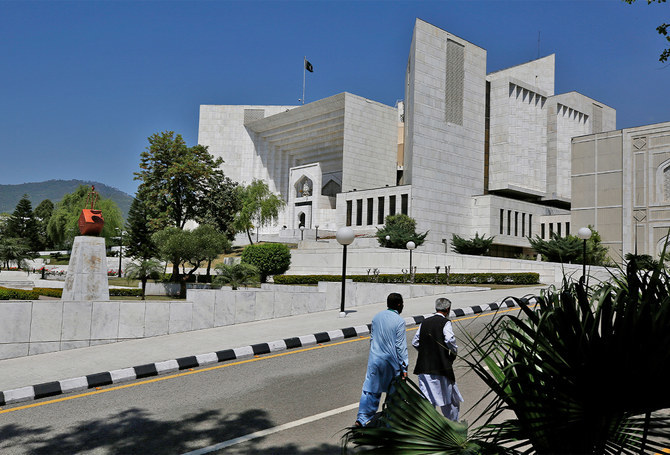
- The apex court directs the State Bank of Pakistan to release Rs21 billion by Monday and submit a compliance report
- Khawaja Asif accuses top court of playing ‘leading role’ in politics, says it should not ‘trespass’ on parliament’s territory
Saudi Arabia’s Crown Prince expected to visit Pakistan any time during May — FM Dar
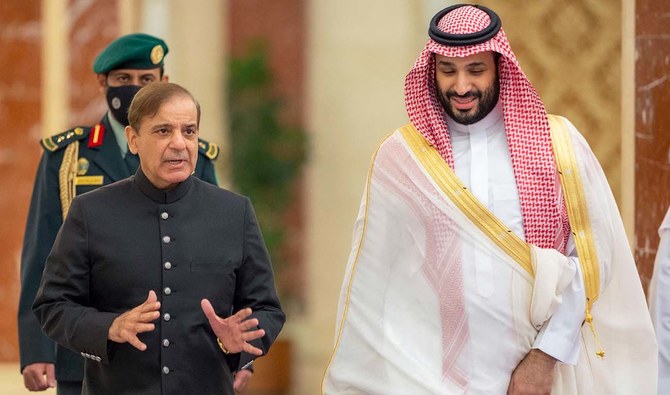
- The development comes after a flurry of high-level engagements between Pakistan and Saudi Arabia in recent weeks
- Both countries have been working closely to increase bilateral trade and investment in several diverse sectors
ISLAMABAD: Ishaq Dar, Pakistan’s deputy prime minister and foreign minister, on Tuesday said the much-awaited visit of Saudi Arabia’s Crown Prince Mohammed bin Salman to Islamabad was “on the cards” and could materialize any time during the month of May.
The statement follows a series of high-level engagements between the two countries, including the visits of Pakistan PM Shehbaz Sharif to the Kingdom and a visit of Saudi Foreign Minister Faisal bin Farhan to Islamabad.
The visit by the Saudi Crown Prince would mark his first trip to Pakistan in the last five years. His previous visit took place in February 2019 during the tenure of former prime minister Imran Khan.
“That visit [of Saudi Crown Prince] is due, which will happen anytime during May,” Dar told reporters at a media briefing in Islamabad. “We will receive the final dates from there [Saudi Arabia] and as a foreign ministry, we are in touch and his visit as of now is on the cards.”
The Saudi Crown Prince accepted PM Sharif’s invitation to visit Pakistan during their meeting in Ramadan, according to Dar.
“He [Saudi Crown Prince] said that he will visit Pakistan after the initial government-to-government (G2G) and business-to-business (B2B) meetings,” the Pakistani foreign minister said.
Pakistan and Saudi Arabia have been working closely in recent weeks to increase bilateral trade and investment deals, with Crown Prince Mohammed bin Salman last month reaffirming the Kingdom’s commitment to expedite an investment package of $5 billion.
PM Sharif discussed increasing bilateral trade and investment in his meeting with the Crown Prince during Sharif’s visit to Saudi Arabia on April 6-8, according to Dar.
It was followed by the visit of a Saudi ministerial delegation, led by FM Prince Faisal, to Islamabad on April 15-16, during which Pakistan presented the Saudi delegation with an investment menu that was “meticulously prepared after extensive efforts.”
Following Sharif’s talks with the Crown Prince and other top Saudi officials in Riyadh, a 50-member, high-level delegation, led by the Kingdom’s Assistant Minister of Investment Ibrahim Al-Mubarak, arrived in Pakistan on Sunday to explore investment opportunities in the South Asian country.
“The Saudi Assistant Investment Minister has brought prominent private Saudi companies for B2B meetings as government could only involve in major projects such as Reko Diq, petrochemicals and mining,” he said, adding that his government had aligned Pakistani companies for matchmaking.
“While bilateral trade volume will be bolstered through the private sectors of both sides, the government will facilitate this process as demonstrated by our recent efforts.”
Dar said Pakistan’s future looked “promising” due to the rapid progress made on the bilateral trade and investment agenda, on the directives of the Saudi Crown Prince.
Pakistan and Saudi Arabia enjoy strong trade, defense, and cultural ties. The Kingdom is home to over 2.7 million Pakistani expatriates and serves as a top source of remittances to the cash-strapped South Asian country.
’Wide potential’: Pakistani PM invites Japanese industrialists to invest in electric vehicle industry
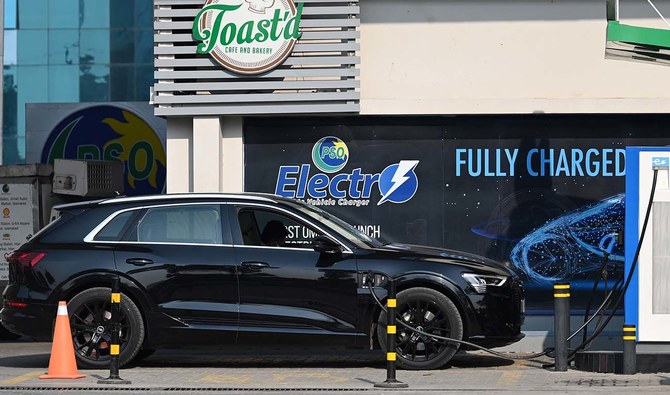
- The delegation, led by Japan’s Ambassador Wada Mitsuhiro, met PM Shehbaz Sharif to discuss various opportunities in Pakistan
- PM Sharif says his government has formed committee to resolve issues faced by Japanese firms expanding businesses in Pakistan
ISLAMABAD: Prime Minister Shehbaz Sharif on Tuesday met with a delegation of Japanese industrialists in Islamabad and urged them to invest in Pakistan’s electric automotive industry, Sharif’s office said, amid country’s push to attract foreign investment.
The delegation, led by Japan’s Ambassador to Pakistan Wada Mitsuhiro, met the prime minister to discuss various opportunities in Pakistan, according to PM Sharif’s office.
The Pakistan premier noted that Japan and Pakistan were longstanding friends and the two countries should further promote trade and investment ties in various sectors.
“There is a wide potential for investment in the electric vehicle industry in Pakistan and Japanese companies with the best technology can take full advantage of it,” Sharif was quoted as saying by his office.
“All problems faced by Japanese industrialists and businessmen will be overcome together.”
He noted that his government had formed a committee to resolve the issues faced by Japanese companies, who were expanding their businesses in Pakistan.
During the meeting, the Japanese ambassador informed the prime minister about the arrival of a delegation of 20 well-known Japanese companies to Pakistan in July, which would prove to be an important milestone for the promotion of investment and trade between the two countries.
“The delegation informed the Prime Minister that Japanese companies have started local production of hybrid vehicles in Pakistan,” Sharif’s office said. “The Prime Minister welcomed this move.”
The development comes amid Pakistan’s efforts to attract foreign investment to keep the frail $350 billion South Asian economy afloat.
The cash-strapped nation last month completed its $3 billion International Monetary Fund (IMF) program which helped avert a default last year, but the government of PM Sharif has stressed the need for a fresh, longer-term program.
Pakistan is expected to seek at least $6 billion and request additional financing from the Fund under the Resilience and Sustainability Trust.
PM Sharif says Saudi business delegation’s visit to benefit Pakistan’s economic future
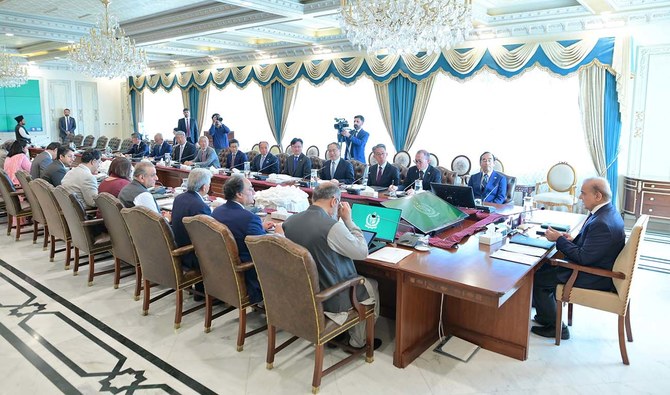
- The prime minister says the Saudi minister leading the delegation described it as ‘a new era’ for Pakistan
- Pakistan is seeking foreign investment to navigate a path to economic recovery as it seeks another IMF bailout
ISLAMABAD: Prime Minister Shehbaz Sharif expressed confidence on Tuesday the Saudi business delegation’s visit to Pakistan would prove beneficial for his country while applauding his cabinet ministers for playing a constructive role in their dealings with the visiting investors.
The delegation, which comprised representatives of 30-35 Saudi companies, was led by the kingdom’s Saudi Assistant Minister of Investment Ibrahim Al-Mubarak and arrived in Pakistan on Sunday.
Its members held several business-to-business meetings to explore investment opportunities in various economic sectors of the country.
The prime minister said in the opening remarks of the cabinet meeting the delegation was satisfied with its engagements in Pakistan before returning to the kingdom. He particularly mentioned the head of the delegation, saying he praised the performance of Pakistani ministers.
“He said, ‘We are very satisfied and happily returning.’ And he said, ‘I will report that we have seen a new era in Pakistan.’ In this, the commerce minister has a very big role, as does the ministers of petroleum and finance,” the PM told the cabinet meeting.
“It augurs very well for our future,” he added.
The kingdom’s business delegation’s visit to Islamabad followed Saudi Foreign Minister Prince Faisal bin Farhan’s visit to Islamabad last month, when he was briefed by the authorities on various avenues to invest in the country.
Pakistan is trying to navigate a path to economic recovery by securing an International Monetary Fund bailout.
It also needs foreign investment to help fight a chronic balance of payments crisis.
Pakistan expecting investment in port infrastructure by global shipping giant Maersk — minister
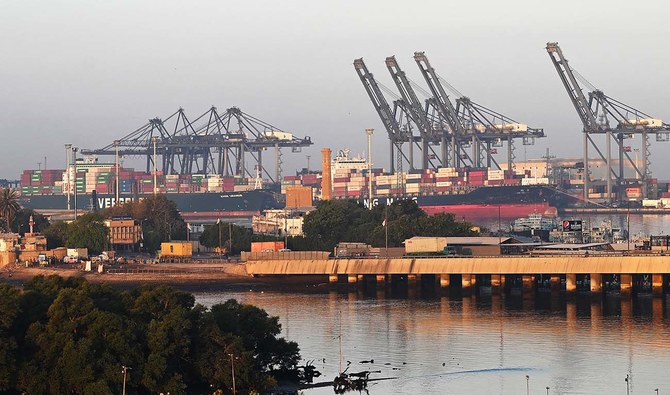
- AP Moller-Maersk has a market share of around 20 percent in Pakistan’s containerized import-export activities
- Qaiser Ahmed Sheikh says there is a lot of interest in Pakistan’s port as a global hub for transshipment
KARACHI: Pakistan is expecting investment from a Denmark-based global shipping giant, AP Moller–Maersk (Maersk), in its port terminal and infrastructure, the Pakistani maritime affairs minister said on Tuesday, amid growing global interest in Pakistani ports.
The statement comes more than a week after Maersk Chief Executive Officer Keith Svendsen’s visit to Pakistan, where he met top officials to explore opportunities in Pakistan’s maritime sector.
Maritime Affairs Minister Qaiser Ahmed Sheikh told Arab News the Danish shipping firm was interested in investing in a terminal and port as well as allied infrastructure, including connecting bridges.
“We had very good discussions with them and they had shown eagerness and told us that they will submit proposal in a few days,” he said. “They want to take a terminal. There is some area where there is depth in the sea, where big ships can be anchored.”
Maersk has grown into a leading provider of logistics and supply-chain services across Pakistan. It has around 20 percent market share in Pakistan’s containerized import-export activities, according to Pakistan’s information ministry.
In January, the Danish shipping firm announced new smart logistics and warehouse facilities in China, Norway and Pakistan.
“With a vast network of warehousing and depot facilities across the country, including our flagship logistics hub in Port Qasim, Karachi — a sprawling 27-acre complex encompassing over 650,000 square feet of warehouse space — we ensure unparalleled support to Pakistani exporters and importers,” the shipping company said in a written response to Arab News.
“In total, Maersk now operates over a 1.5 million square feet footprint across 7 cities in Pakistan.”
Sheikh said many companies were interested in investing in the Karachi Port Trust (KPT) despite a limited space available there.
“We have limited space available in KPT and many, including foreign, companies are taking interest in it, particularly in the deep-water areas where water depth is high and we have the location,” he said.
“The point is that there is a lot of interest in Pakistan’s port right now because they are seeing this as a global hub for transshipment and they will also run the feeder vessels in the Gulf from here.”
To a question about a visiting Saudi delegation, the maritime affairs minister said “there are many breakthroughs” during the visit. “They are looking for areas of mutual interest which both sides can benefit from,” he added.
The South Asian nation has already signed an agreement with Abu Dhabi (AD) Ports Group which is investing about $395 million for the development of a container and cargo terminal under a government-to-government (G2G) agreement between the United Arab Emirates and Pakistan.
FBI’s fallen Pakistani agent Kamran Faridi says returning to Pakistan will be ‘dangerous’

- Faridi was recently released from a Florida prison on the condition he would deport himself to Pakistan permanently
- Faridi ran off to Sweden and then to the US in the 1990s after falling out with the law over his links with criminal gangs
KARACHI: Kamran Faridi, a fallen undercover FBI agent from Karachi who was recently released from a Florida prison on the condition he would surrender his American nationality and deport himself to Pakistan permanently, said on Tuesday it would be “dangerous” for him to return to his home country from where he had escaped a life of crime nearly 30 years ago.
Faridi, 60, worked as an informant and agent for the FBI for nearly 15 years and was the architect of the plan to entrap Karachi businessman Jabir Motiwala, arrested by Scotland Yard in London in 2018 on the request of the United States. After years working for the FBI, he was sentenced to 84 months in jail on Dec. 9, 2022, after he refused to testify against Motiwala.
“It will compromise my well-being, it’s going to be difficult,” Faridi told Arab News in a phone interview from Florida, speaking about the prospect of returning to Karachi after nearly 30 years. “It’s going to be dangerous but what choices do I have?”
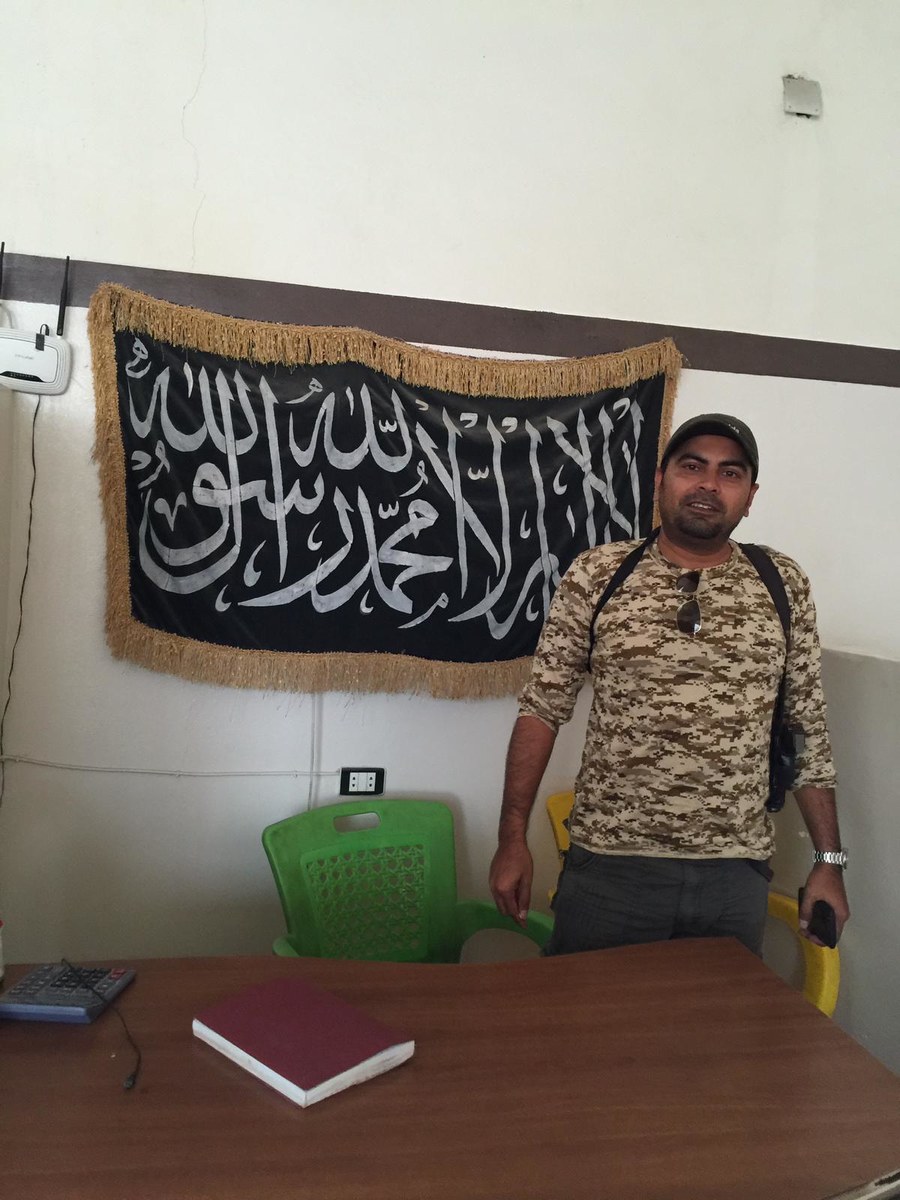
Faridi, who lives in the US with his American wife, said the judge had reduced one year from his prison sentence on account of a recent law where a first offender gets a two-point sentence reduction.
Good conduct in prison and a verbal agreement with American authorities that he would surrender his nationality and return to Pakistan before August this year further reduced his sentence, Faridi said. Another stipulation of the agreement was that he would not appeal the court’s decision.
VETERAN SPY
Faridi worked for the FBI from 1995 till 2020 and helped the American agency nab several targets associated with transnational terrorist organizations. However, a 25-year relationship with the American agency turned sour in 2020 after Faridi said he refused to testify against Motiwala, allegedly a high-ranking member of the Indian organized crime syndicate D-Company.
Motiwala was arrested in London in August 2018 for conspiring to launder money into the United States and using force to extort funds. Faridi, who played a pivotal role in his arrest, said he later refused to testify against Motiwala after he realized the businessperson had been framed on bogus charges.
Faridi said his FBI colleagues had informed him that FBI was involved in a joint operation with India’s spy agency the Research and Analysis Wing (RAW) to establish a link between Motiwala, the D-Company and Pakistan’s Inter-Services Intelligence (ISI) military spy agency.
Faridi was arrested in London in 2020 after FBI agents intercepted his conversations with Motiwala’s lawyers, revealing his intent to testify in Motiwala’s favor. He was apprehended at the London Heathrow Airport while attempting to enter the UK, intending to testify against the FBI’s actions regarding Motiwala.
Charged with being a threat to his former FBI colleagues, Faridi was swiftly extradited back to the US and jailed.
“It’s a very complex case, the FBI wants to punish me for not testifying against D-Company,” Faridi said.

FROM KARACHI TO ATLANTA
Faridi was a member of the Karachi-based Muttahida Qaumi Movement (MQM) party and subsequently of its rival, the Peoples Student Federation (PSF), in the 1990s. Both groups were widely known to be involved in criminal activities like kidnappings and armed robberies, which Faridi also became linked to. He later went on the run and escaped to Sweden, where he sought asylum almost three decades ago. He was later arrested by authorities after getting into fights with local gangs there, but broke out of prison and managed to escape to the US, where he ran a gas station in Atlanta.
It was there that he came into contact with the Atlanta Police Department after he complained to them about “corrupt” police officers whom Farid said were harassing him. Thus began his work as an informant with Atlanta police, who later introduced him to the FBI. Impressed with his proficiency in the Urdu, Punjabi, Hindi, and Spanish languages, the FBI decided to recruit him as an informant and agent.
“So that’s how I got introduced to FBI and they introduced me to the Drug Enforcement Authority, Immigration and Customs Enforcement, and after 9/11 the Central Intelligence Agency, MI6, French intelligence and many others,” Faridi said.
Faridi said he had paid a “hefty” price for refusing to testify against Motiwala but would now return to Karachi with his wife.
“I was a gangster but I am neither a criminal nor a gangster now,” he said. “I am returning to my city as a normal man.”










